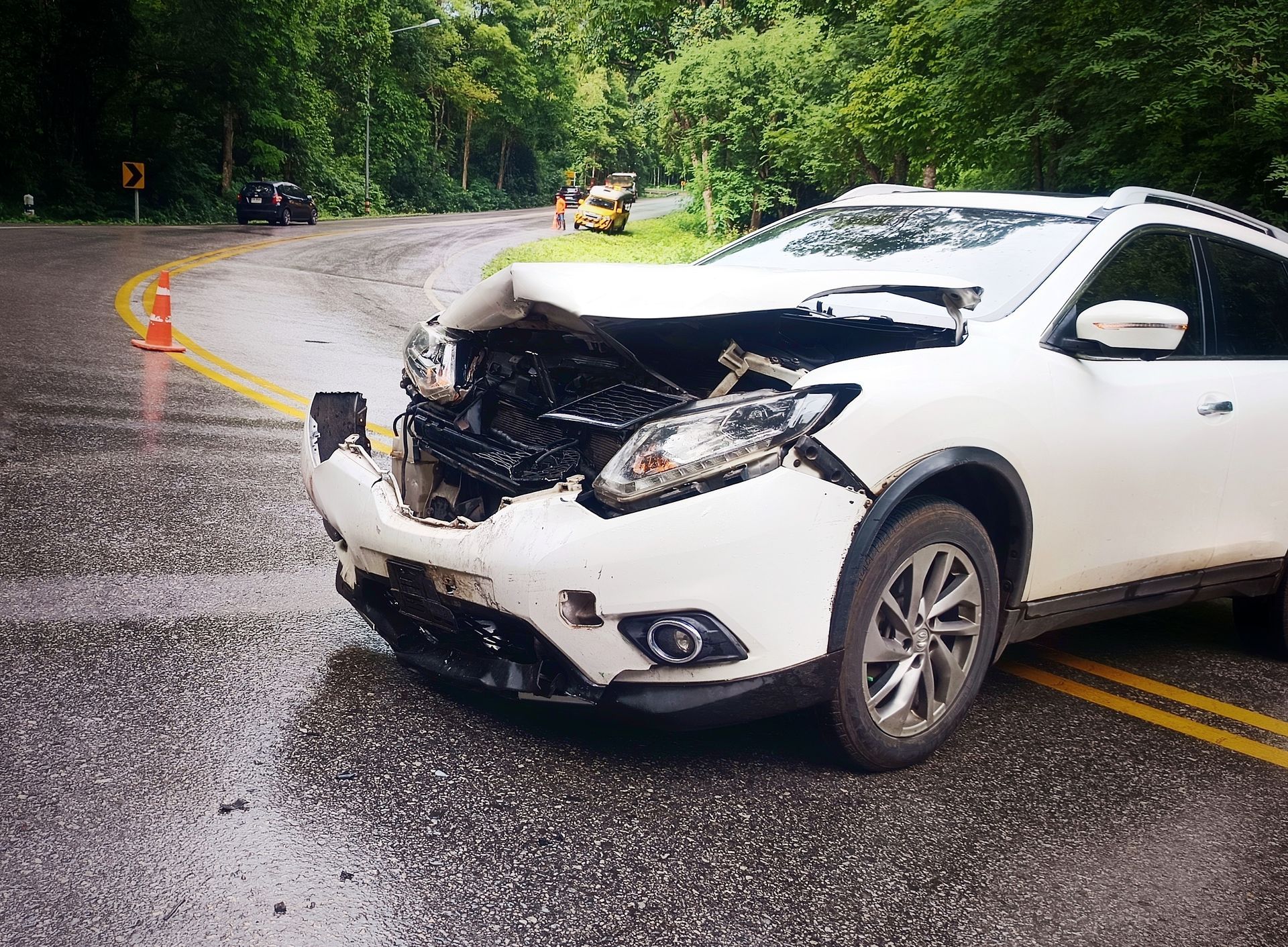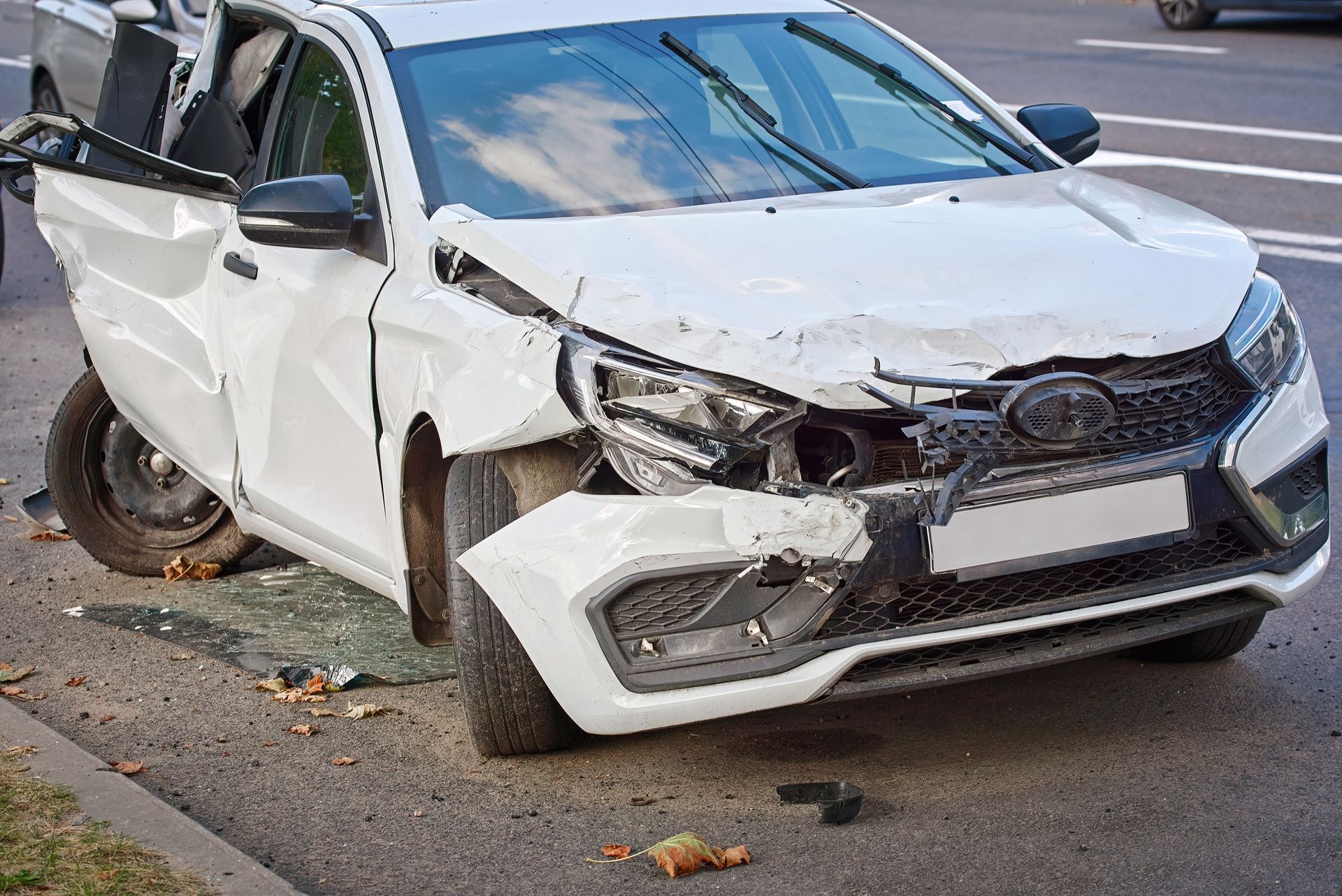Sargon Law Blog
Recent Blog Posts
Understanding the Definition of Punitive in a Personal Injury Case
When a person is the victim of a personal injury accident, civil court is a way to recoup expenses like medical treatment and lost wages due to the injury, as well as compensation for the emotional and physical trauma suffered on account of the accident. All of these are compensatory damages. However, sometimes the court also acknowledges the need to financially punish a defendant beyond this. With a personal injury case, there can also be punitive damages. Knowing the definition of punitive helps you determine what damages to pursue.
What Is a Basic Definition of Punitive Damages?
According to the Merriam-Webster dictionary, the word punitive means inflicting, involving, or aiming at punishment. When it comes to Arizona law, this definition applies to personal injury cases as a way to use damages to punish the defendant for an act of negligence or harm.
Comparison to Compensatory Damages
In a civil trial in Arizona, the law allows the plaintiff to seek compensatory damages. This is financial compensation for any losses associated with their injuries. These include things like ambulance fees, medical bills, rehabilitation services, lost wages, and long or short-term disability complications. Arizona doesn't limit how much an individual can claim under compensatory damages.
For example, Arizona courts awarded over $156 million in personal injury verdicts during 2019. Two verdicts were over $10 million and 22 were between $1 million and $10 million. Six of the highest verdicts were issued in Maricopa County. These verdicts included both compensatory and punitive damages.
Punitive Damages as Punishment
Unlike compensatory damages, the court does put a restriction on a person's ability to seek punitive awards. Punitive damages are separate damages and awarded in addition to compensatory damages. As the definition of punitive indicates, there are two primary purposes behind these damages:
- Punish a defendant for acts of gross misconduct
- Establish a deterrent to keep others from engaging in similar action in the future
One important limitation on seeking punitive damages is the nature of the conduct of the at-fault party. Recent clarifications to Arizona law now specify when a plaintiff can seek damages in an injury case.
What Does Punitive Mean in Personal Injury Cases?
Since the goal is to inflict punishment, these damages are typically high enough to create a serious financial consequence for the party at fault for the accident. In August 2022, the Arizona Supreme Court clearly established the standard for seeking punitive damages in personal injury cases.
Although the initial grounds for seeking punitive damages required evidence of a defendant acting with an evil hand and evil mind which led to an outrageous behavior, cases through the years complicated the interpretation of circumstances. Questions arose on a jury's ability to infer an evil mind with or without connecting a subsequent outrageous behavior. Confusion over the exact language and the ability to draw an inference led to the need for clarification.
For Arizonans looking to pursue punitive damages, the standard was set with the court's decision in the 2022 decision with Swift versus Carman. Without proof showing the intent to cause harm or acts of spite or ill will from the defendant, "outrageous conduct" is a requirement for claiming punitive damages.
Although this may sound more complicated, the basic meaning is that those seeking punitive damages need to prove one of two things:
- The at-fault party intentionally caused harm because of ill will towards the victim.
- The at-fault party knew their action was unsafe and would likely cause harm but did it anyway.
Since personal injuries can happen in a number of environments or situations, the details needed to provide punitive damages vary.
What are Possible Scenarios for Suing for Punitive Damages?
Although there are qualifiers for pursuing punitive damages in personal injury cases, there are a number of scenarios where these awards are possible. Working with a personal injury attorney is the recommended way to know if your case is eligible for this additional compensation.
Car Accidents
In some instances of car accidents, it may be possible to seek punitive damages. If a driver intentionally uses their vehicle as a weapon to hit someone, the case may be eligible. If a driver engages in a risky or seriously dangerous activity while on the road that they know can cause harm to those around them, an injured person could work with an experienced Phoenix car accident attorney to seek punitive damages.
An example of intentional, outrageous conduct could be a driver displaying road rage who tries to ram their car into another. This could intentionally cause harm to any occupants in the other vehicle.
Wrongful Death
Punitive damages might be an appropriate pursuit in a wrongful death suit. However, there is still the responsibility of showing how the responsible party acted.
A number of wrongful death lawsuits in Arizona deal with work-related situations. If an employer knows about defective equipment that could cause serious harm to employees but doesn't repair the equipment or replace it, an employee fatality could be eligible for compensation under the state's qualification and definition of punitive damages.
Circumstances of trucking accidents can often lead to a wrongful death claim with the plaintiffs seeking punitive damages. Truck drivers who drive while texting, drowsy or under the influence know the risks and regulations against these behaviors but engage in them anyway. Companies that encourage truckers to ignore fleet maintenance or hours of service regulations or that fail to vet their drivers in the hiring process may be held liable for punitive damages if fatalities occur in an accident.
Insurance Bad Faith
The definition of punitive shows the intention to punish a certain behavior that causes harm. Insurance companies sometimes act in a way that hurts the insured. For example, if an injured person files a valid claim on a policy, but the insurance carrier refuses to compensate the individual, this falls under bad faith insurance practice.
When an insurer intentionally drags out a person's claim and stalls for a variety of reasons, the injured person can suffer additional financial damages as well as emotional and mental distress. A court may require the insurance provider to pay punitive damages as a part of restoration for the harm caused.
What Are the Limitations of Punitive Damages?
Some states cap the amount a plaintiff can be awarded in punitive damages. While Arizona doesn't have a limit on award amounts, the U.S. Supreme Court set a recommendation for the ratio of punitive to compensatory damages not to exceed 9:1.
With this ratio, a plaintiff awarded $100,000 in compensatory damages could receive up to $900,000 in punitive damages. A higher award amount would likely be deemed inappropriate and reduced by the court.
Even though Arizona doesn't maintain an official limit within the definition of punitive damages, the state's Supreme Court set a recommendation that punitive damages do not exceed an award ratio of 4:1. In some cases, the state reduces award amounts to a lower ratio.
For example, in the case of Nardelli v. Metro. Group Prop. & Cas. Ins. Co., the Arizona Court of Appeals upheld a trial court action that reduced a punitive award originally set at $55 million down to $620,000 and further down to $155,000. In this instance, the ruling was equal to a 1:1 ratio with compensatory damages.
Appropriateness of Punitive Damages
There are several factors that the Arizona court takes into account when considering punitive damages. The general figure determined for punitive damages comes from the ratio formula with compensatory damages, but the determination of the appropriateness of the estimate comes from the following considerations:
- How severe was the conduct of the defendant?
- How long did the conduct last?
- What degree of awareness did the defendant display over the conduct or were there attempts to conceal the conduct?
- What is the net worth of the defendant?
Even if there are satisfactory answers to these questions and punitive damages are appropriate, not every entity or person may be held liable for punitive damages. Under the Arizona statute, both public entities and their employees receive immunity from punitive damages. This includes public school teachers, police officers or other publicly employed individuals acting within the scope of their employment.
Who Pays for Punitive Damages in Personal Injury Cases?
Though the definition of punitive indicates that someone will experience a punishment, a defendant in a personal injury case doesn't always pay a court award or settlement figure out of their own pocket. Insurance policies may cover this expense.
In a personal injury suit, the defendant could be an individual or a business. Most business entities have insurance policies to address financial liabilities like workplace accidents or third-party injuries. If you are hit by a drunk driver, the other driver's auto insurance policy may cover the legal liabilities associated with an accident.
Not every insurance policy will include payments for punitive damages. Most of them include compensatory damages but with a limit on how much the policy will pay. Anything awarded beyond that is the individual's personal responsibility. The same is true if there is no insurance policy in place to cover damage awards.
Should You Settle With Insurance or Fight for Punitive Damages?
It's normal to hesitate at the idea of going to trial to hold someone accountable for their actions. The details of your case help an experienced personal injury attorney determine which course of action gets you the compensation you deserve, but there are several benefits to fighting for punitive damages over an out-of-court settlement.
Larger Payout
Insurance companies often try to settle claims quickly, offering amounts that stay within the limits of a policy. Because of policy limits, you don't see the definition of punitive having an impact on the at-fault party.
Injured parties end up getting less than they deserve, and the negligence goes unpunished. Going to court gives you a better chance of recovering all of your damages and then some. Jury verdicts are often much larger than a pretrial insurance settlement offer.
Accountability
By taking the insurance settlement offer, you can avoid going to court. However, this means the at-fault individual is able to resolve the situation without having to take responsibility for their actions and admit fault. By taking the case to trial, you can hold the party accountable for their wrongdoing or negligence which often brings a sense of closure to the event.
Objectivity
Going to court puts your case in front of neutral and objective parties. The circumstances, eyewitness testimony, expert insight and more are presented to a judge and judge. Their careful review of all of the evidence leads them to an objective decision concerning who is at fault and the damages they are responsible for.
How Can a Lawyer Help Your Case?
If you are the victim of a personal injury, it's natural to feel angry at the situation or the person who caused your pain. Taking this party to court for damages can provide a sense of justice over the event.
Because Arizona law applies punitive damage eligibility in a limited number of circumstances, it's important to work with a skilled personal injury lawyer in Phoenix when pursuing litigation. You will need their experience in injury law to know crucial details such as when are filing deadlines, how to call expert witnesses, and what kind of jury to select.
Legal Aid for Pursuing the Definition of Punitive Damages
Your injuries and the circumstances surrounding the event could fall into a category where Arizona's definition of punitive damages allows you to seek compensation. The Sargon Law Group dedicates its efforts to ensuring you get the legal aid you need to get the best results for your case. Contact us today to schedule a consultation for your personal injury claim.





